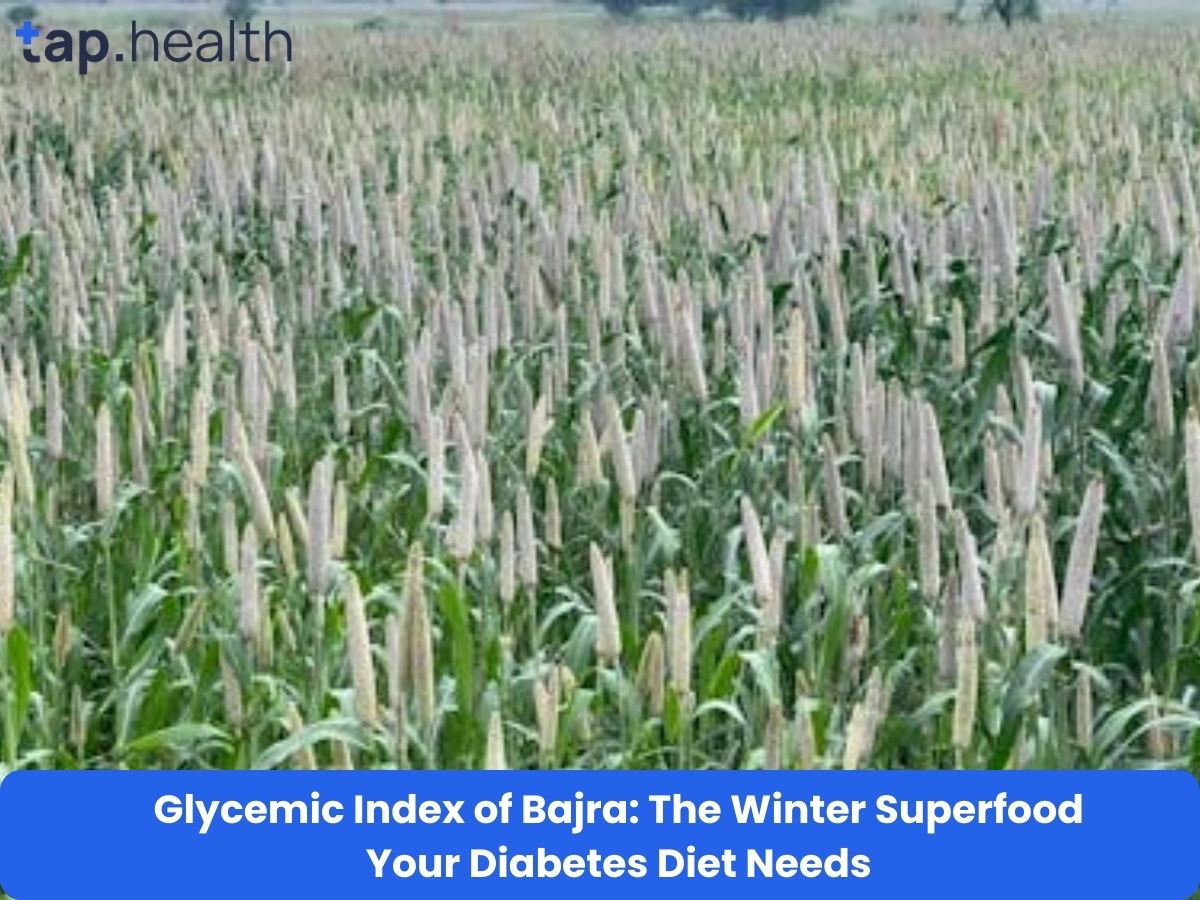Table of Contents
- Understanding Diabetes: The Role of Epigenetics
- Epigenetic Factors and Their Impact on Metabolic Disease
- Diabetes and Metabolic Syndrome: An Epigenetic Perspective
- How Epigenetics Modifies Diabetes Risk and Progression?
- Unlocking the Secrets: Epigenetics, Metabolism, and Diabetes Management
- Frequently Asked Questions
- References
Living with diabetes, or understanding the risk factors for yourself and loved ones, can feel overwhelming. While genetics play a role, the story is far more nuanced than simply inheriting the disease. This blog post dives into the fascinating world of Understanding Diabetes: Epigenetic Factors and Metabolic Disease, exploring how environmental influences and lifestyle choices actually modify our genes, impacting our susceptibility to this complex condition. We’ll unpack the science behind epigenetics, revealing how it interacts with metabolism and offering practical insights into prevention and management.
Understanding Diabetes: The Role of Epigenetics
Epigenetics and its Impact on Diabetes in India and Tropical Countries
Diabetes, a significant health concern globally, disproportionately affects individuals in India and other tropical countries. A staggering 61% of those living with diabetes are between the ages of 20 and 64, according to the International Diabetes Federation’s Diabetes Atlas, highlighting the disease’s impact on the working-age population. Understanding the intricate interplay between genetics and environment, specifically through the lens of epigenetics, is crucial for developing effective prevention and management strategies within these regions.
Epigenetics explores how environmental factors influence gene expression without altering the underlying DNA sequence. These modifications, such as DNA methylation and histone modification, can be influenced by lifestyle factors prevalent in India and tropical nations, including diet, physical activity levels, and exposure to environmental toxins. For example, the high consumption of processed foods and refined carbohydrates in many parts of these regions may contribute to epigenetic changes increasing the risk of type 2 diabetes. Furthermore, chronic stress, a common factor in many tropical countries, can also trigger epigenetic modifications, potentially leading to metabolic dysfunction and increased susceptibility to diabetes. This is especially relevant when considering the challenges of Managing Diabetes as You Age: Challenges and Solutions, as aging often exacerbates these issues.
Addressing the epigenetic factors contributing to diabetes requires a multi-pronged approach. This includes promoting healthy dietary habits emphasizing fresh produce and whole grains, encouraging regular physical activity tailored to the specific cultural contexts, and addressing the social determinants of health that contribute to stress and poor lifestyle choices. By focusing on these actionable steps, we can work towards mitigating the growing burden of diabetes in India and other tropical countries. The connection between diet and diabetes is crucial, as highlighted in our article, Understanding the Link Between Diabetes and Obesity. Seeking guidance from healthcare professionals and participating in community-based diabetes prevention programs can empower individuals to make informed choices and improve their overall health outcomes.
Epigenetic Factors and Their Impact on Metabolic Disease
Understanding the Epigenetic Influence on Diabetes in Tropical Climates
Diabetes, a significant metabolic disease, disproportionately affects populations in India and other tropical countries. While genetics play a role, epigenetics—the study of heritable changes in gene expression without alterations to the underlying DNA sequence—offers crucial insights into its development. These changes are influenced by environmental factors, lifestyle choices, and even dietary habits. For example, studies show that daily consumption of sugary beverages raises diabetes risk by 26%. This highlights the impact of environmental factors on gene expression.
Lifestyle and Environmental Factors in Epigenetic Modification
In many tropical regions, readily available sugary drinks contribute to a high-sugar diet. This, combined with factors like limited physical activity and socioeconomic disparities, creates an environment conducive to epigenetic modifications that increase diabetes susceptibility. These modifications can alter how genes related to insulin production and glucose metabolism function, potentially leading to insulin resistance and type 2 diabetes. This is particularly relevant in densely populated urban areas within India and other tropical nations.
Dietary Interventions and Preventative Measures
Understanding the role of epigenetics in diabetes allows for a more nuanced approach to prevention and management. Focusing on lifestyle changes—like reducing the consumption of sugary beverages, increasing physical activity, and adopting a balanced diet rich in fruits, vegetables, and whole grains—can positively influence epigenetic markers and reduce the risk of developing diabetes. Prioritizing these interventions is vital for public health initiatives within these regions. This is further emphasized by understanding how How Does Nutrition Play a Role in Preventing Chronic Diseases?
Regional Considerations and Call to Action
The high prevalence of diabetes in India and other tropical countries underscores the need for region-specific strategies. Public health campaigns emphasizing dietary changes and promoting healthier lifestyles are crucial in mitigating the impact of epigenetic factors. Let’s work together to create a healthier future by making informed choices about our diet and lifestyle. It’s also important to remember that individual genetic predispositions can influence how our bodies respond to different nutrients. To learn more about this, read our blog on In What Ways Do Genetics Influence Your Nutritional Needs?
Diabetes and Metabolic Syndrome: An Epigenetic Perspective
Diabetes, a global health crisis costing the world economy a staggering $760 billion annually, is increasingly understood through the lens of epigenetics. This field explores how environmental factors influence gene expression without altering the DNA sequence itself, offering crucial insights into the development of both diabetes and metabolic syndrome, particularly relevant in Indian and tropical countries.
Environmental Triggers and Epigenetic Modifications
In India and other tropical regions, specific environmental exposures – including dietary habits high in refined carbohydrates and saturated fats, coupled with reduced physical activity – significantly impact epigenetic modifications. These modifications can alter the expression of genes involved in glucose metabolism, insulin sensitivity, and lipid regulation, ultimately increasing the risk of type 2 diabetes and metabolic syndrome. Lifestyle choices, therefore, have profound and lasting epigenetic consequences.
Implications for Prevention and Treatment
Understanding the interplay between environmental factors and epigenetic changes provides crucial avenues for prevention and management. Strategies focusing on dietary interventions, increased physical activity, and stress reduction can potentially reverse or mitigate harmful epigenetic modifications. Early detection and proactive lifestyle changes are paramount, especially in high-risk populations within India and other tropical regions, where the prevalence of diabetes and metabolic syndrome is particularly high. It’s also important to consider the impact that diabetes can have on mental health; learning about the connection between The Impact of Diabetes on Mental Health can help in a holistic approach to management.
Actionable Steps for a Healthier Future
Prioritizing a balanced diet rich in fruits, vegetables, and whole grains, combined with regular physical activity, is key. For individuals in India and tropical countries, culturally appropriate dietary modifications, focusing on traditional, nutrient-dense foods, can be highly effective. Seeking guidance from healthcare professionals for personalized strategies is strongly recommended to address the unique epigenetic risks associated with diabetes and metabolic syndrome within these regions. For those seeking more proactive steps, exploring information on How to Reverse Diabetes Permanently may prove beneficial, although professional guidance remains crucial.
How Epigenetics Modifies Diabetes Risk and Progression?
The alarming statistic that children born to mothers with gestational diabetes are seven times more likely to develop type 2 diabetes later in life highlights the powerful influence of inherited factors beyond just genetics. This is where epigenetics comes into play. Epigenetics refers to changes in gene expression that don’t involve alterations to the underlying DNA sequence itself. Instead, it’s about how environmental factors and lifestyle choices influence which genes are switched “on” or “off,” affecting an individual’s susceptibility to diseases like diabetes.
Environmental Impacts on Gene Expression
In the context of diabetes, epigenetic modifications can alter the function of genes involved in insulin production, glucose metabolism, and pancreatic beta-cell function. These changes can be influenced by various factors, including maternal diet during pregnancy, exposure to pollutants, and even chronic stress. The impact is particularly relevant in Indian and tropical countries, where dietary habits and environmental exposures might differ significantly from Western populations. For example, high intake of certain foods, common in many Indian diets, could trigger epigenetic modifications increasing diabetes risk. Conversely, adopting healthier lifestyles, focused on balanced nutrition and stress management, can potentially reverse some of these negative epigenetic changes. Understanding the role of stress is crucial; learn more about how How Stress Hormones Affect Diabetes.
Practical Implications for Prevention and Management
Understanding the role of epigenetics in diabetes is crucial for developing targeted preventative strategies. In India and other tropical regions, public health initiatives should emphasize educating pregnant women about the importance of managing gestational diabetes, along with promoting healthy lifestyles across generations. Focus should be on dietary education, encouraging physical activity, and stress reduction techniques as a means to influence epigenetic markers and reduce the inherited risk of type 2 diabetes. Early intervention and lifestyle modifications can be incredibly effective in preventing or delaying the onset of diabetes. This holistic approach, combining awareness with actionable steps, is key to combating the growing burden of diabetes in these regions. It’s also important to consider the relationship between diabetes and other health issues; for example, read more about Does Diabetes Cause Cancer?
Unlocking the Secrets: Epigenetics, Metabolism, and Diabetes Management
The Hidden Role of Epigenetics in Diabetes
Diabetes, a significant global health concern, especially prevalent in India and other tropical countries, often goes undetected. A staggering 50% of diabetes cases worldwide remain undiagnosed, according to the International Diabetes Federation. This alarming statistic highlights the urgent need for increased awareness and improved management strategies. Understanding the intricate interplay between epigenetics, metabolism, and diabetes is crucial in this fight. Epigenetics, the study of heritable changes in gene expression without alterations to the underlying DNA sequence, plays a pivotal role in influencing an individual’s susceptibility to metabolic diseases like type 2 diabetes. Factors like diet, lifestyle, and environmental exposures can trigger epigenetic modifications, impacting insulin sensitivity and glucose metabolism.
Metabolic Dysfunction and Epigenetic Markers
In tropical regions, specific dietary habits and environmental factors may contribute to unique epigenetic patterns associated with diabetes. For example, certain dietary components and lifestyle choices common in India may influence gene expression related to insulin resistance and pancreatic beta-cell function. Identifying these specific epigenetic markers could lead to targeted preventative measures and personalized treatment strategies. Research into the epigenetic landscape of diabetes in diverse populations is vital for developing effective interventions tailored to regional needs. Early detection through regular screenings is paramount, especially in high-risk groups. For more on creating a personalized diabetes control plan, which can be vital in managing the impact of epigenetic factors, please see our related article.
Actionable Steps for Improved Management
Adopting a healthy lifestyle, including a balanced diet rich in fruits, vegetables, and whole grains, regular physical activity, and stress management techniques, can significantly impact epigenetic modifications and improve metabolic health. These lifestyle changes, combined with regular monitoring of blood glucose levels and timely medical intervention, are crucial for effective diabetes management in India and other tropical countries. Seeking professional medical advice and engaging in culturally appropriate community-based programs are vital for improving diabetes awareness and empowering individuals to take control of their health. Improving gut health is also a key component, as explained in our article on prebiotics and probiotics for diabetes management.
Frequently Asked Questions on Epigenetic Factors and Metabolic Disease
Q1. What is the connection between epigenetics and diabetes in India and other tropical countries?
Epigenetics studies how environmental factors influence gene expression without changing DNA. In tropical countries like India, lifestyle factors such as poor diet, lack of physical activity, and chronic stress cause epigenetic changes that significantly increase the risk of developing diabetes.
Q2. How do lifestyle factors increase the risk of diabetes through epigenetic changes?
Unhealthy diets high in processed foods and refined carbohydrates, insufficient physical activity, and persistent stress trigger epigenetic modifications in the body, making individuals more susceptible to diabetes.
Q3. What is a multi-pronged approach to prevent and manage diabetes in these regions?
A comprehensive strategy involves promoting healthy diets rich in fresh produce and whole grains, encouraging regular exercise, and addressing social factors contributing to stress. Early detection and culturally appropriate interventions are also crucial.
Q4. Why are targeted preventative strategies and culturally appropriate interventions important?
Diabetes disproportionately affects the working-age population in these regions. Tailored preventative measures and interventions that consider local customs and beliefs are essential for effective diabetes management and improved health outcomes.
Q5. What role does early detection and lifestyle changes play in influencing epigenetic markers and metabolic health?
Early detection allows for timely interventions to modify lifestyle factors. Changes in diet and physical activity can positively influence epigenetic markers, leading to improvements in metabolic health and reducing the risk of developing or worsening diabetes.
References
- A Practical Guide to Integrated Type 2 Diabetes Care: https://www.hse.ie/eng/services/list/2/primarycare/east-coast-diabetes-service/management-of-type-2-diabetes/diabetes-and-pregnancy/icgp-guide-to-integrated-type-2.pdf
- Diabetes Mellitus: Understanding the Disease, Its Diagnosis, and Management Strategies in Present Scenario: https://www.ajol.info/index.php/ajbr/article/view/283152/266731



